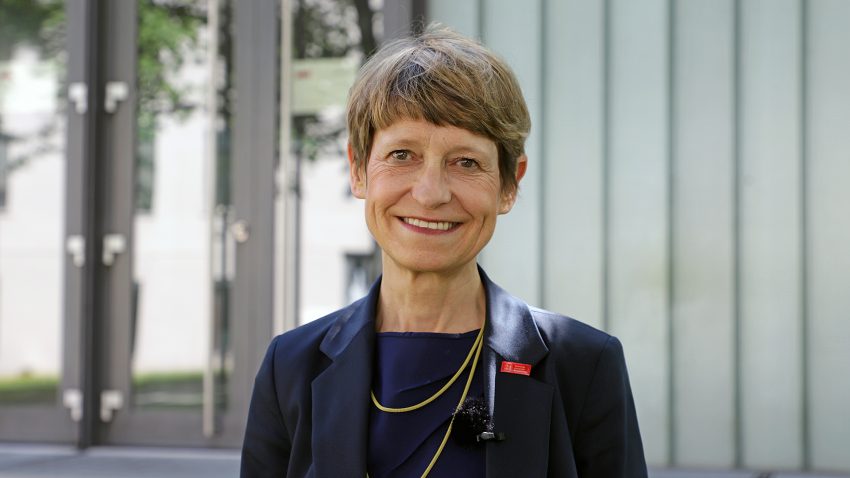The Power of Networking Topics and highlights of the President’s schedule
“Science is not done alone. It is through talking with others and sharing that progress is made.”
Carol W. Greider
(* 1961, San Diego, USA, molecular biologist, 2009 Nobel Prize in Physiology/Medicine)
Networks are widely praised today. In particular, they are seen as an instrument for one’s own career development and a means to achieve professional goals. Networks not only strengthen their individual members but also offer almost endless development opportunities; they create a space for synergies and creativity. I myself have benefited enormously from networks in science and science management and enjoy connecting people. I would also like to implement this at TU Braunschweig and strengthen professional networks.
Networking is not an end in itself. In the science system, everyone has a lot to do and must carefully determine where to invest their energy. One’s own “scientific community” is usually the first and most important network to build and expand in the context of academic career prospects. After all, it is still the expert associations that decide on the quality and sustainability of one’s own work in the science system. In addition to the professionally enriching exchange, concrete options for applications and collaborative projects often arise here.
So why look beyond the boundaries of one’s own discipline? Because work, at our university as well, involves more aspects than those of one’s own discipline. Interdisciplinary work is immensely important, not only for the strategic orientation of a university, but also for broadening personal horizons. Without an integrated research approach, we will not remain compatible. The great global challenges can only be solved together – I will gladly emphasise this again. I can still remember how amazed I was that scientists do not all speak the same language and use the same terms for completely different concepts. The competence to communicate despite this and to pursue common goals can be practised and applied in networks. This applies to all academics, but especially to female colleagues, because networking cultures are often not as strong among women as they are among their male colleagues. Networks also offer a space to exchange meta-professional experiences and ideas, to use constructive feedback from “critical friends” and to gain strength.
This is as well true for our students. We actively promote the possibility of getting involved in student initiatives. The networks they build there often last a lifetime. It also applies to our staff in technology and administration and especially to academics at all career levels. We want to offer them a community within the university also beyond their discipline.
To do so, we start where networking is particularly useful and demonstrably effective. Together with the Equal Opportunity Office, I have set up a network for female professors in which our female chair holders can informally exchange ideas. Experienced women and newcomers can learn and benefit from each other here. The first meeting has already taken place and was met with a very broad, positive response. Another meeting is planned for the spring.
The next step is to set up a roundtable for international employees at our university to exchange experiences as an international member of our university in a protected space.
Unfortunately, for the foreseeable future, all of this is only possible digitally. We are all aware that exchange, especially in informal networks, works much better when you are together in one room. We all wish that this will soon be possible again. But until then, we must once again stick together and do everything we can to contain the pandemic. Together and networked, we can do it!

